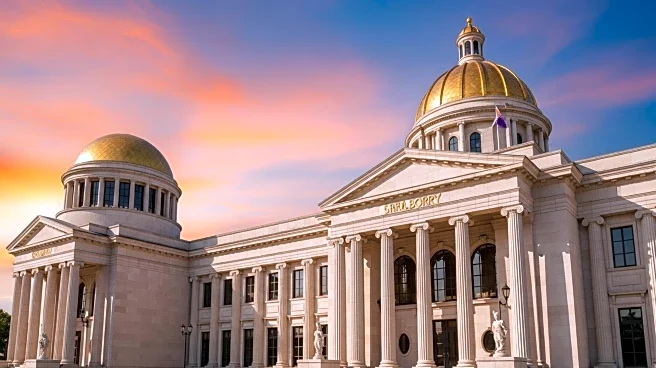What is the story about?
What's Happening?
Florida officials have voted to allocate nearly three acres of land in downtown Miami for the future Donald J. Trump Presidential Library. The decision was made unanimously by Governor Ron DeSantis and the Florida Cabinet, transferring the property appraised at $66 million to the Donald J. Trump Presidential Library Foundation, Inc. The foundation, led by Eric Trump, Michael Boulos, and James Kiley, plans to develop the site into a presidential library and museum. The land, currently owned by Miami Dade College, is adjacent to the historic Freedom Tower. This site will be the smallest in acreage for any modern presidential library, with plans to start construction within five years.
Why It's Important?
The approval of the site for President Trump's library is significant as it marks the establishment of a permanent archive for his administration's documents and artifacts. This development is poised to impact Miami's skyline and economy, potentially attracting tourists and scholars interested in presidential history. The decision reflects political dynamics in Florida, where Governor DeSantis has supported measures to facilitate the library's development, countering potential opposition from local governments. The library's presence in Miami could also influence cultural and historical narratives, given the city's diverse population and political landscape.
What's Next?
The Donald J. Trump Presidential Library Foundation is required to commence construction within five years. The development process will likely involve architectural planning and fundraising efforts to ensure the library's completion. Stakeholders, including Miami's local government and community groups, may engage in discussions about the library's design and impact on the area. The library's establishment could prompt reactions from political figures and historians, shaping public discourse around President Trump's legacy.
Beyond the Headlines
The decision to build the library in Miami highlights broader cultural and political implications. Miami's historical significance, particularly the Freedom Tower's role in Cuban immigration, adds a layer of complexity to the library's narrative. The library's construction may also spark debates about presidential legacies and the role of such institutions in shaping public memory. Additionally, the library's development could influence urban planning and real estate dynamics in downtown Miami.















